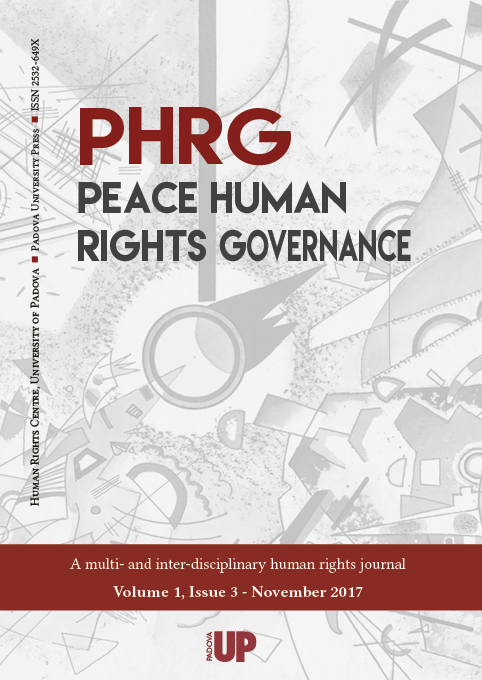Raccolte

Active Neutrality with the New International Law. Reflections from a Politics of Law Perspective
Antonio Papisca (2017)
- Sito internet
- Peace Human Rights Governance 1(3)
- Tipologia pubblicazione
- Articolo / Saggio
- Pagine
- 395-404
- Lingua
- EN
This paper discusses the meaning and scope of the concept of neutrality. After having rapidly outlined the origin and features of this norm, as introduced by customary and conventional international law between the 19th and 20th century, the paper argues that the rationale of neutrality has changed with the coming of new international law, which organically took shape starting from the UN Charter and the Universal Declaration of Human Rights. Such law introduces the principle according to which the ‘recognition of the inherent dignity and of the equal and inalienable rights of all members of the human family is the foundation of freedom, justice and peace in the world’ and states that the repudiation of war must be accompanied with the exercise of active roles in the construction of a world order of positive peace. The new rational of neutrality lies therefore in its being functional to the affirmation of a governance which is decisively oriented to peace and human rights while international human rights law offers the opportunity to liberate the praxis of neutrality from the traditional war/negative peace/armed defence paradigm. The last part of the paper provides and discusses some operational ideas to put this new rationale into practice.

